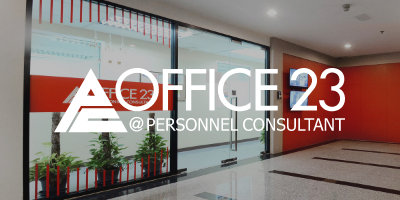One of the common questions among job seekers is whether it’s better to work for a small company or a large company. To understand this, we need to first define the criteria for business sizes. The Ministry of Industry has set various criteria to classify businesses as small, medium, or large industries. Generally, the classification is based on the number of employees, the amount of investment, asset value, sales volume or revenue.
A small business
– No more than 50 employees
– Investment not exceeding 20 million THB
A medium-sized business
– 50 to 200 employees
– Investment between 20 to 200 million THB
A large business
– More than 200 employees
– Registered capital of 200 million THB or more
The Differences Between Small and Large Companies
1.Organizational Structure
This is a crucial component that significantly impacts work operations. The organizational structure defines working relationships and divides responsibilities. The structures of small and large companies differ, influencing their work processes.
Small companies : The organizational structure is usually a Flat Organization. This flat structure has fewer hierarchical levels, offering more flexibility. With a smaller number of employees, everyone interacts closely. However, sometimes the unclear hierarchy can affect work efficiency.
Large companies : The organizational structure is a Pyramid Organization structure. This pyramid structure has multiple hierarchical levels due to the large number of employees. Each employee has a clear role and position, which means decision-making takes longer as it passes through various levels. However, this structure provides more stability than small companies.
2.Work Style
Each company has a distinct work style influenced by various factors, with the size of the organization being a significant one.
Small companies : The work style is flexible and fast-paced due to the smaller number of employees. Decisions can be made quickly. However, with fewer employees, one person is often expected to have a broad range of skills and handle multiple tasks beyond their primary role. This situation can be a good opportunity to learn diverse new skills and use creativity fully. Therefore, the work style in small companies suits those seeking challenges, willing to learn new things, and wanting to explore various roles.
Large companies : The work style is systematic and procedural, with clear responsibilities for everyone. This may result in slower processes because decisions must pass through multiple levels. Therefore, the work style in large companies suits those who excel in a specific field and want to be specialists. However, the larger organization might mean employees have to work within more constrained boundaries compared to small companies.
3.Stability and Advancement in Work
Opportunities for advancement and stability are key factors in choosing a job for many people. Both small and large companies offer unique advantages in these areas.
Small Companies : Working at a small company often means less job stability but greater opportunities for advancement. Employees can participate more in decision-making processes and easily showcase their work to management. With fewer competitors, it’s possible to quickly rise to higher positions if you demonstrate outstanding abilities. Additionally, salary structures are more flexible, allowing for significant raises. However, a drawback is that working at a lesser-known company might not be as advantageous when seeking new job opportunities.
Large Companies : In contrast, large companies typically provide more job stability and opportunities to develop specialized skills. Working for a well-known organization is a significant advantage when looking for a new job. However, promotions and position changes tend to occur more slowly due to hierarchical structures and intense competition.
4.Corporate Culture
Corporate culture significantly impacts work and relationships among employees.
Small Companies : Small companies usually have a more informal corporate culture. The work environment is generally more relaxed, with employees having greater freedom to express their opinions. The close-knit relationships can sometimes lead to less privacy and a lack of mutual respect.
Large Companies : Large companies typically have a more formal corporate culture with clear rules and regulations. They often have core values that guide employee behavior. Relationships tend to be more confined to within teams or smaller groups.
5.Benefits
Employee benefits vary widely and have become a crucial factor for job seekers when choosing a company.
Small Companies : Nowadays, small companies offer comprehensive basic benefits comparable to large companies. Due to their smaller structure, they can adapt or add benefits more easily. These might include perks like free breakfast, snacks, and beverages instead of group health insurance.
Large Companies : Many people choose to work for large companies due to their extensive and well-structured benefits. These often include comprehensive group health insurance, dental coverage, provident funds, and various forms of financial assistance for special events.
Should you choose to work for a small company or a large company?
There is no definitive answer as to whether it’s better to work for a small or a large company. It depends on what you prioritize the most. For example, if you value a varied work environment and want to explore different roles to discover your true interests, a small company might be more suitable for you. On the other hand, if you prefer working in a structured environment with clear job scopes and responsibilities, and you aim to become a specialist with expertise in a particular field, then a large company might be a better fit.
Regardless of whether you work for a small or large company, it doesn’t guarantee happiness or success. You need to put in effort and dedication, continuously learn, and never stop developing yourself. If you can do this, you can advance and succeed in your career in your own way, no matter the size of the company.
Personnel Consultant , we’re Japanese recruitment agency company in Bangkok. Recruitment services has been in the business of recruiting Thai and Japanese talent for 30 years.
Companies looking for talent & staffing , please contact us through this form Click
Tel.02-2608454
Email : jobs@personnelconsultant.co.th










